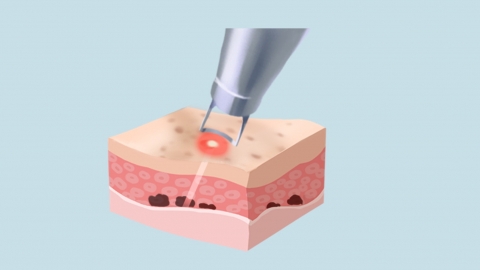Can laser hair removal cause hepatitis B virus infection?
Generally speaking, the term "hepatitis B virus" refers to the hepatitis B virus (HBV). Whether laser hair removal can lead to HBV infection mainly depends on whether disinfection is thorough and whether there is skin damage. If the disinfection is thorough and there is no skin damage, infection is generally unlikely. However, if disinfection is inadequate and there is skin damage, there may be a risk of infection. If any discomfort occurs, prompt medical attention is recommended. Detailed explanation is as follows:

If thorough disinfection is performed before and after laser hair removal, and no skin damage occurs during the treatment, and the device does not come into contact with blood from an individual infected with HBV, transmission is generally unlikely.
If disinfection before and after laser hair removal is inadequate and skin damage or bleeding occurs during the procedure, and the equipment becomes contaminated with blood from an infected person, the risk of infection may increase. Therefore, regular monitoring is necessary after hair removal. If symptoms such as fatigue, nausea, loss of appetite, or yellowish complexion appear, timely diagnostic evaluation should be conducted.
It should be noted that there are many transmission routes for HBV infection, including mother-to-child transmission and sexual contact transmission. Therefore, whether infection occurs cannot be assessed based solely on laser hair removal. Additionally, to reduce the risk of infection, it is important to maintain regular作息 patterns and a balanced diet.





